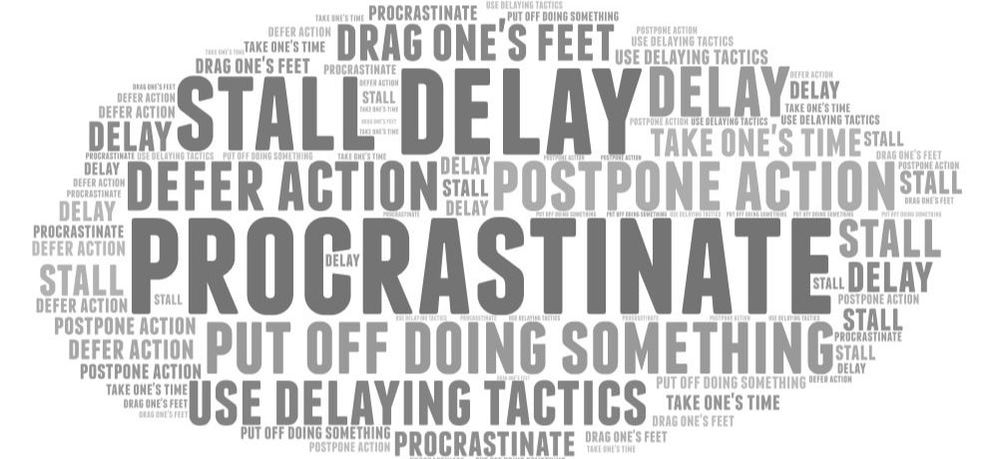|
“There are still days I wake up feeling like a fraud, not sure I should be where I am.” - Sheryl Sandberg Over the last weeks, I have been pondering on my struggle to accept that my success is earned and that I deserve to be where I am today. I had heard of the "imposter syndrome," but I didn't think that was what I was experiencing. I started digging deeper into this exciting topic and learned great insights that I would like to share. Especially as we prepare for the greatness that lies ahead of us, it is essential to be equipped to overcome imposter syndrome.
This blog post is written from the perspective of someone who suffers from Imposter syndrome wanting to help others like me. We will explore the definition, signs as well as tips to overcome imposter syndrome. For some useful resources to equip yourself, refer to the "Great Resources" section. We can only take our place in this world and enjoy where we are when we accept that we deserve the good things. What does Imposter syndrome mean?
How to tell if you have imposter syndrome?
How to overcome Imposter syndrome Tip 1: Own your accomplishments You did it! We need to get into the habit of celebrating our accomplishments. Growing up in Nigeria, people were often labeled as proud or pompous if they spoke about their achievements. This is something I have been working very hard at unlearning. Feeling a sense of accomplishments is needed for healthy self-esteem. Focus on what you have accomplished and not what you expect to have achieved. I have come to value my accomplishment log as it helps remind me of all that I have accomplished when I start doubting myself. Tip 2: Stop comparing yourself to others When we start doubting ourselves and our accomplishments, the first place we go is to start comparing ourselves to others. We tend to view other's success as more significant, or think they are more deserving than we are. Your accomplishments are significant and deserve to be acknowledged. Stop trying to lessen the impact of the work you put in. Tip 3: Find mentors and a support group It is important to get comfortable talking to people you trust about your feelings. Sharing your insecurities can be an essential step to overcoming your imposter syndrome. There are many women out there like you doubting themselves. Imagine the strength we can find in confiding in trusted people and accepting their commitment to support us on our journey. Also, surrounding yourself with other people who are comfortable with celebrating their accomplishments will begin to rub off on you. Tip 4: Accept positive feedback Are you that person that can't take a compliment or positive feedback? Do you find yourself thinking people feel obliged to compliment you and don't mean it? Hearing people confirm your accomplishments and embodying it helps overcome imposter syndrome. It is often much easier for us to accept negative feedback than positive because we don't feel like we deserve the kind words people say to us. If you are tempted to shoot down a compliment, remember you earned it. Tip 5: Think about set-backs differently When we experience some setbacks, it might be easy to beat ourselves up and doubt our previous successes. Will you be where you are today if you didn't face some failures along the way? Seeing setbacks that you face as learning experiences and not the end of your story will help you bounce back and feel confident again. Tip 6: Keep working on it It takes continuous work and effort to overcome imposter syndrome. As you experience more success in life, you may have even more self-doubt. Remember the techniques that work for you and get to work. Keep aspiring for more and exploring new ways to celebrate your accomplishments. Final Thoughts
Great Resources
1 Comment
As you start thinking about your goals for 2019, I would like to recommend adding "cultivating good money habits" to your list. On our continuous quest to become financially independent and grow our wealth, we need to learn and practice money habits that support our mission.
This blog post continues the Her Finances series. Explore ten simple good money habits and how you can start making them yours today. While you read, select a few habits and write down how you plan to make them happen in 2019. #1: Live within your means This is an essential financial habit that you need. If you pick only one from the list, let it be this one. Your journey to financial independence starts with respect for your money and making wise money decisions. How:
#2: Know your financial status Knowledge is power when it comes to your financial situation. It is essential to know where you stand financially. Sometimes it seems more comfortable not to know. However, if you want to see the positive change, you need to get comfortable with knowing your real financial status. How:
#3: Talk about money Being open about your financial status and challenges is very crucial to take charge of your finances. We have been trained to treat finances like a taboo topic, and this is hindering our financial growth and freedom. Sharing money experiences and learnings with your trusted friends and family unlocks many benefits. How:
#4: Have a financial plan Until a few years ago, I never really understood what a financial plan was. Having a plan for what I wanted to do with my money and how my money will work for me was a very foreign concept. Writing down the things you want to be able to do like get out of debt, buy a house, retire comfortably, save or pay for education provides you with a clear view of what you are working towards financially. How:
#5: Find ways to save money As part of your monthly budget reviews look for areas where you could potentially be saving a little more money. I am living proof that saving money can be more fun than spending money. Watching your savings grow can be very rewarding. How:
#6: Get expert help You don't have to go through your financial challenges and growth alone. There are professionals out there who can provide guidance and share knowledge on how you can achieve your financial goals more efficiently. How:
#7: Grow your money Looking for ways to increase your current income, create new income streams or invest your money should also be on your list. Building wealth is one area we need to explore more on our financial journey. How:
#8: Be financially literate Yes, we need to be financially literate. There are so many things to learn about finances. Be on a mission to learn about different aspects of money. Somehow we are willing to bridge our knowledge gaps on almost every other topic, but we neglect our financial literacy. How:
#9: Surround yourself with "good money" people Being in an environment of people who save and are responsible with their money is a great way to stay on track. Surrounding yourself with this group of people will offer you great learning opportunities and experiences that help you achieve your money goals. How:
#10: Invest in yourself Prioritize investing in opportunities that will help you get to the next level on your journey. Your personal growth is the best investment opportunity that will bring you the most return. We need to invest more in ourselves to get the results we want. How:
Final Thoughts
Great Resources
As we prepare for the new year, it's a great time to analyze the things holding us back and make plans for change. If you procrastinate, you are not alone. We all put off doing something from time to time.
Most of the time, the conversation is about ways to stop procrastinating. Have you ever considered managing your procrastination instead? The main difference in that, you can continuously address procrastination every time it happens instead of trying to eliminate a natural trait. In this post, we will learn about the reasons we procrastinate and explore some techniques to manage procrastination. These techniques help me every day, and I know they'll help you too. What does procrastinate mean?
Why do we procrastinate? There are many reasons why we procrastinate
The benefits of managing procrastination
Five techniques to manage procrastinating and achieve your goals Are you a procrastinator? Tip: Observe yourself and discover the reasons your procrastinate Reflect on the times when you procrastinate. Make a note of what you think the reasons may be. Procrastinating is a natural reaction to a task we are uncertain of. However, there are ways to ensure that you are not missing out on the greatness that awaits you. Being aware of why you procrastinate is the first step. Are you unable to start working towards your goals? Tip: Create a plan and get started The best way to set yourself up for success is to have a written action plan. It will help you prioritize and see what you should be working on. Now that you have a plan and clarity of the one task you should be working on today, start working on that one task. Beginning a task today will get you closer to your goal. Are you struggling to finish a task? Tip: Set achievable goals and focus Often we take on huge tasks that overwhelm us and lead to us putting things off. It has been proven that when we set goals that are too big, our natural reaction is to panic. When I set goals, I'm very particular about making sure I am not taking on too much at once. Focusing on finishing one task before you move to other tasks will give you better results. Do you feel overwhelmed and alone with your goals? Tip: Find an accountability partner or group Find people you trust and ask them to be your accountability partner or join a group. Over the past months, I have started valuing my accountability partners more. I found that the fact that you have to share updates with someone forces you to do what you planned. Are you discouraged because you don't see progress? Tip: Measure your progress and celebrate key milestones Tracking your achievements and progress towards your goals is an excellent source of motivation for your journey ahead. Many times we procrastinate because we don't feel successful. Celebrate all milestones like starting a task not only completing a task. Be more aware of the progress you are making towards achieving your goals. Final Thoughts
Great Resources
Recently at an event, I shared my story and how I celebrate my two cultures - Nigerian and German. From when I was eighteen months old to the age of fifteen, I lived in Kaduna, a lovely city in northern Nigeria.
I am continuing my journey with this appreciation of a country that taught me a lot and contributed to who I am today. In this blog post, I will share the top 10 principles Nigeria taught me that prepared me well for life. #1: Appreciate your community I grew up in a mid-sized extended family and a large community. I have so many lovely memories with people I'm related to and others that were very close to my family. Often, I wasn’t sure who was a blood relative versus a very close family friend. The saying that it takes a village to raise a child was very evident in the way I grew up. #2: Work with what you have From observing the people around me growing up, I learned to be very resourceful. The concept of making the best with the resources that were available is one that I fully embody today. I know that I have something that can be used to make bigger things. #3: Enjoy good food My fondest childhood memories are associated to meals with my close and extended family. The times we spent together bonding over meals are engraved in my mind. Till today, I still love to cook and eat with my loved ones and friends. Nigerian food is definitely my go-to food. #4: Be kind to everyone In Kaduna where I grew up, almost everyone was connected in some way. We knew that if we met someone, we had to be nice to them because we never knew when our paths might cross again. On my journey so far, being kind and respectful has opened many doors and connected me to great people. #5: Share what you have The ability to share with people around me is one that I learned from the great examples I observed. Growing up, many people were open to sharing food, space, knowledge, and experiences. Seeing the sacrifices others made for me, I’m happy to share with people around me today. #6: Laugh a lot My smile and laughter are deeply rooted in my Nigerian upbringing. When I think back to my favorite moments growing up, there was a lot of laughter. One thing I carefully guard today is my happiness. #7: Celebrate life events It seemed like there was always a party or celebration around us. Whether it was births, weddings, graduations, birthdays, there were many occasions and reasons to celebrate. In my life today, I have translated this principle into celebrating achievements as much as I can. #8: Appreciate diversity Growing up in Kaduna, I had the unique opportunity to be surrounded by people from different regions of Nigeria. I learned how to respect different languages, food, religions and cultural norms. Going on to live in different countries, I have been able to build upon the solid foundation I had. #9: Be positive and hopeful As I make progress in life, I appreciate the lesson I learned about being hopeful. My faith continuously fuels my aspiration for a better future and hope that everything will work out for good. #10: Be a strong woman In my family and community, many strong women worked hard to cater to their families. They were a core inspiration for the woman I am today. I'm very fortunate to have had some great role models in my life. Final Thoughts
|
AuthorMarie-Christin Anthony Categories
All
Archives
November 2023
|






 RSS Feed
RSS Feed